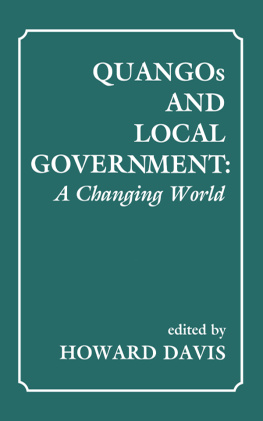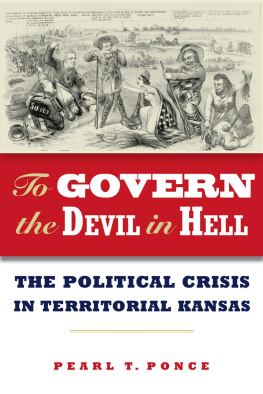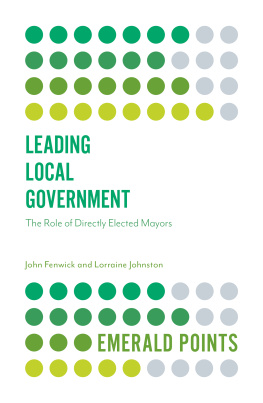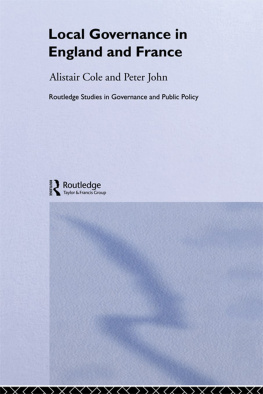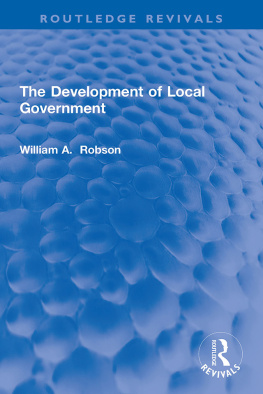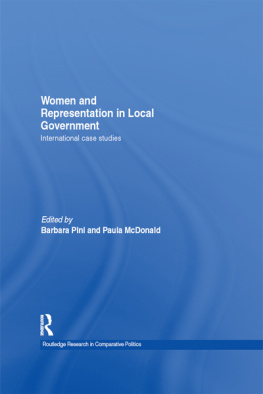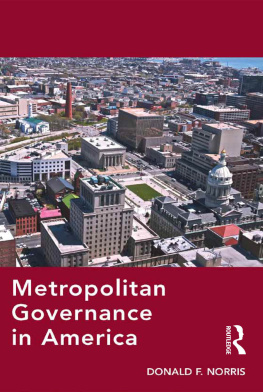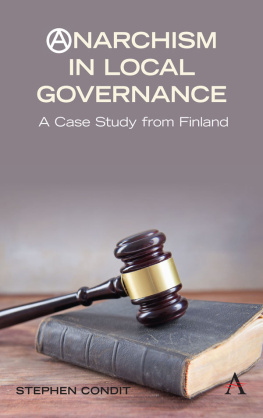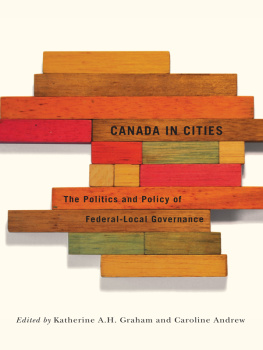First published in 1996 in Great Britain by
FRANK CASS AND COMPANY LIMITED
Newbury House, 900 Eastern Avenue, London IG2 7HH, England
and in the United States of America by
FRANK CASS
c/o International Specialized Book Services, Inc.
5804 N.E. Hassalo Street, Portland, Oregon 97213-3644
Transferred to Digital Printing 2004
Copyright 1996 Frank Cass & Co. Ltd
British Library Cataloguing in Publication Data
QUANGOs and local government:
a changing world
1.Local government - Great Britain
I.Davis, Howard, 1953
352.041
ISBN 0 7146 4735 7 (cloth)
ISBN 0 7146 4324 6 (paper)
Library of Congress Cataloging-in-Publication Data
QUANGOs and local government: a changing world
p. cm.
This group of studies first appeared in a Special Issue of Local
Government Studies, Vol. 22, No. 2 (Summer 1996).
ISBN 0-7146-4735-7 (cloth)
1. Local government--Great Britain.2. Administrative agencies
-Great Britain.3. Executive advisory bodies--Great Britain.
I. Davis, Howard.
JS3111.C47 1996
320.850941--dc20
96-14813
CIP
This group of studies first appeared in a Special Issue of Local Government Studies, Vol.22, No.2 (Summer 1995), [QUANGOs and Local Government: A Changing World].
All rights reserved. No part of this publication may be reproduced, stored in a retrieval system, or transmitted in any form, or by any means, electronic, mechanical, photocopying, recording or otherwise without the prior permission of Frank Cass and Company Limited.
HOWARD DAVIS
The Growth of Government by Appointment
Recent years have seen a major transformation in the way that local communities are governed. There has been a growth of government by appointment. outlines the growth of government by appointment.

Figure 1 The Growth of Government by Appointment
Source : Adapted from J. Stewart and H. Davis, A New Agenda for Local Governance, Public Money and Management , Oct.-Dec. 1994, p.29.

Figure 2 Councillors and Appointees in the West Midlands: the Changing Balance
Source: H. Davis (ed.), QUANGOs and Local Government: Issues and Responses (Inlogov, 1995), p.5.
The number of members of appointed and self-appointed bodies who, following Morris,).
This volume is concerned with developing understanding of the new and changing world of local governance. It is, of necessity, selective in its coverage. The topics covered do, however, give a flavour of the changes that have been taking place and include joint working, managing a change of status, partnerships and networks.
Blurred Boundaries: A Cause for Concern?
There is now an appointed world of local governance sitting alongside elected local government. Many appointed bodies (popularly known as QUANGOs) are seen, from the local government perspective, as domain intrudersthe sense that that term is normally understood, but companies limited by guarantee. Housing Action Trusts and Education Associations are both government-appointed bodies, rather than the independent bodies that their titles imply.
Some may question whether such issues matter, but acceptance of different definitions can lead to acceptance of different principles or standards. Some in the housing associations, for instance, have sought to distance themselves from wider debates about standards of governance for public services.
The Nolan Committee on Standards in Public Life has implicitly joined this debate by extending its investigations to include what it terms local public spending bodies, By this we mean not for profit bodies which are neither fully elected nor appointed by ministers, but which provide public services, often delivered at local level which are wholly or largely publicly funded. Lord Nolan himself comments that,
We are charged with examining key areas of public life and, if necessary, making recommendations designed to ensure that the highest standards are maintained, and are seen to be maintained we are looking at local public spending bodies because the services which they provide are very important to us all. They have been subject to great change in recent years. We need to be sure that in seeking improvements in service we have not put at risk those values and standards which are the cornerstone of public life.
The key principles the seven principles of public life were earlier set out by the Committee in its first report and are reproduced here as .
Fragmentation and Accountability
Holders of public office is a key phrase used by Nolan and defining sectoral boundaries is therefore a potentially significant issue if principles such as those below are to apply which surely they must. There can be no justifiable reason for applying different standards to different public services simply because the bodies which provide them are constituted in different forms. It is a matter of considerable regret that, in the absence of direct electoral accountability, many of the other bodies now sharing territory with local government have a less rigorous framework of accountability.

Figure 3 The Seven Principles of Public Life
Source: Committee on Standards in Public Life (the Nolan Committee), First Report, Cmnd 28501 (HMSO, 1995), p. 14.
The increased importance and number of appointed bodies exercising governmental powers locally has led to a growing fragmentation of community governance. It is a development that has a profound significance. As we have noted in an earlier publication,
The fragmentation of the government of cities, towns and rural areas between different organizations and institutions is reducing the
Governmental systems need a capacity for integration. In a fragmented system different policy agendas have to be brought together and new forms of relationship must be built, yet the capacity of local government to provide that direction through civic leadership is reduced.
Effective networks, partnerships and joint arrangements can be built, as some of the contributions to this volume demonstrate, yet the vexed question of accountability remains. Arrangements for improved stewardship and managerial accountability may be put into place. These are surely to be welcomed, but the issue of how to hold decision makers to account remains largely unresolved.
Current arrangements for local government elections may well have their faults. Nevertheless, councillors are, in principle, subject to removal through this process and, as such, are imbued with a legitimacy that board members of appointed and self-appointed bodies do not enjoy. Local democratic accountability is a key issue in the emerging system of local governance and it is something that local authorities can bring to the table in their discussions and negotiations with other bodies at the local level.

